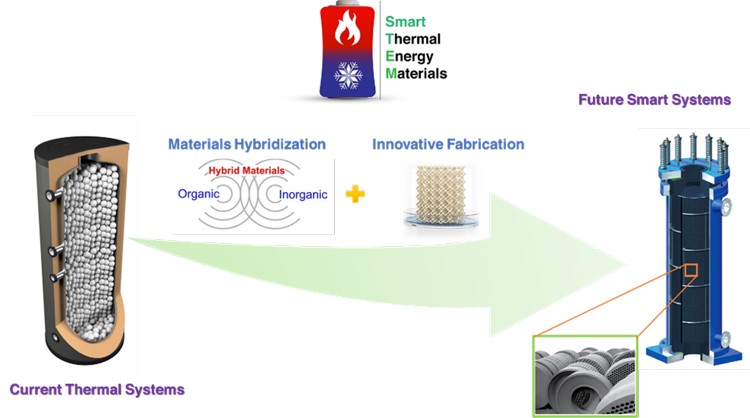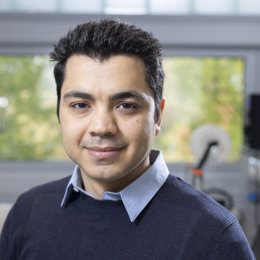Advanced Thermal Energy Conversion and Storage Materials
My name is Mohammed Mehrali, and my Sector Plan research is in the field of Heat Conversion and Storage. I work together with my group called Smart TEM. The priorities in my group are fundamental research for innovative materials in the field of energy storage and conversion, as well as applied R&D in the field of energy storage and process engineering.
Background
I received my PhD in Materials Science and Engineering, where I focused on creating innovative latent heat storage materials to improve the efficiency of future heat batteries. My current research at UT under Sector Plan Engineering primarily includes fundamental research in collaboration with leading research partners, but also applied research with industrial partners in the Netherlands and worldwide.
In the years to come
The decarbonisation of society and industry presents us with exciting challenges. Heat is the world's largest form of energy use and to ensure that deep decarbonisation remains viable, decarbonising heating solutions in individual homes and businesses remains an imperative. It has been shown that advanced materials are essential for effective heat conversion and storage systems. Our smart material development methods create advanced thermal energy conversion as well as storage materials and structures. These ensure added value at University of Twente and help on the way to a CO2-neutral future.

My research interests revolve around putting thermal energy conversion and storage material solutions into practice to have a real effect for the benefit of companies and the good of society. The use of advanced synthesising and fabrication methods, state-of-the-art analysis equipment and laboratories go hand in hand with development methods such as ideation, design thinking and rapid prototyping. Some examples include the investigation of novel salt hydrate composites for latent heat storage (PCMs) in the SMARTHEAT project and tunable composite thermochemical materials (TCMs) in the SALTECH project for future heat battery technologies. My team is highly motivated, international, and well trained. In the Thermal Engineering research laboratory for thermal energy storage, energy systems and process engineering, the efficiency of thermal systems is checked and verified. The properties and material data of various storage materials are of major interest for applications in storage facilities. Storage materials are also tested for their capacity, longevity, and cycle stability.
Education
In our technical society today, learning and teaching engineering is becoming more and more important. The combination of research and teaching benefits the research partners and the training of our graduates at the same time. I am currently teaching industrial engineers both the fundamentals and engineering aspects of energy and heat transfer (Bachelor course in IDE-Module 5). I aim to develop a new fundamental course with practical assignments on thermodynamics of materials (Master course) so that students will become familiar with thermodynamic models, experimental methods, and methods for theoretical computation of thermodynamics. I use a Cooperative Learning (CL) approach to encourage students to work in teams on a structured learning task, each student in the team is held responsible for doing their share of the work and for understanding everyone else’s contribution. Students should be helped to develop leadership, communication, conflict resolution, and time management skills.
Collaborations
A strong network with many other research groups ensures that the right team members are always on the team, even for very specific issues. We have developed strong collaborations with different groups here at UT as well as other national and international research groups. Additionally, our research relies heavily on industry relationships involving companies (e.g., ATAG, Remeha, Nouryon, BASF, among others), research institutes (TNO) and professional organisations. These mutually beneficial partnerships can produce groundbreaking research and innovation that solves complex problems, drives economic growth, and creates a more skilled workforce.

